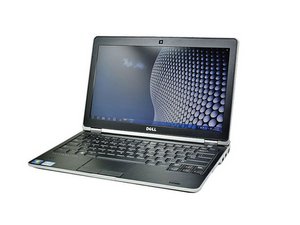Laptop sometimes boots to BIOS (E6220)
*Read: I chose the E6230 device page since it is closest to the E6220*
This E6220 is the one I use, but I primarily bought for the power supply and batteries since it was about as much to buy a 2nd system with 2 batteries and a 90W charger, which allows for ExpressCharge. My preferred unit (no webcam/mic only) is in much nicer shape. This one has more cosmetic issues, and I need to tape the lower cover on since the retention screw point was stripped by the previous company.
On occasion when I use the parts purchase machine, it occasionally boots to BIOS instead of to Windows but within 1 reboot it works. It is still running the original 128GB Dell SSD it shipped with (LCT-128M3S), but it has low lifetime writes (14.88GB in Hard Disk Sentinel) and 13 power cycles, so the drive is like new. I’m not too concerned about the SSD since it’s barely used, but I do recognize it might be low hours for a reason (Hint: It happened just as the warranty expired and was sold off at auction or in a private sale). My other one has a 250GB PNY CS900 (originally the same factory Lite-On SSD/Removed before sale) and I have never had this issue before so it is unique to the parts purchase system and the factory SSD. The caddy and interface are both original from Dell on this one as well.
Is it normal for these machines to sometimes boot to BIOS but recover the next time? I am going to run ePSA and get additional data



Bu iyi bir soru mu?


 312
312  279
279  154
154 

7 Yorum
@aactech Diskette drive->Internal HDD->USB Storage Device->CD/etc. Drive->Onboard NIC
I adjusted it to Internal HDD->USB->CD Drive->Onboard NIC->Diskette Drive. I honestly never had an issue with those settings - which I believe are defaults.
My hope is that this Dell SSD wasn't erased with a tool like DBAN, especially since it's from a time when SSDs were new enough few people knew DBAN damages them and that's the issue. The strange thing is it now reports 3.63GB lifetime writes.
Nick tarafından
@nick
What about setting 1st boot device to Internal HDD and others to "nothing".
Are you using W10 on it? I've heard about it causing this problem sometimes. It does have that feature hidden away in "Settings" some where.
mike tarafından
@aactech Yes I am running 10 on it.
It SORT OF exists on the UEFI Dell hardware. I need to change it to UEFI but I also installed it in Legacy mode since this was a 7 machine and I didn't change it at the time of install. I didn't expect this issue to come up needing a possible change.
My concern is more to do with the health of the SSD - I can live with it if it's an issue with Legacy boot enabled (but not UEFI), since I don't feel a reinstall is worth it over a nuisance issue I don't run into with the PNY one - I think it may help the CS900 is an IRRT SSD. That may be the cure for no HD purchase folks who need to start from scratch since I've never seen it on that one, but the older non-IRRT SSD has an issue. Some food for thought since I have a 2nd one available and I have not had this issue AND it's also configured as a Legacy boot system. I'd imagine most modern SSDs support it, especially made within the last 5 years.
If I ever find a cheap lower chassis for it at the right price/a donor that's beyond repair, I'd probably give some thought to buying a modern SSD for science to see if it's because of the BIOS or IRRT helps.
Nick tarafından
@nick
Isn't it just a matter of converting drive from MBR to GPT. The freeware versions of Mini Partition Tools and EasUS Partition Master will do this
And then boot it up into BIOS/UEFI and change setting from "Legacy".
Or handmade:
1.) Boot to the Windows Recovery Environment and start the Command Prompt console
2.) Issue convert command: mbr2gpt.exe /convert.
3.) Restart your computer and boot into your UEFI BIOS.
4.) Change BIOS setting from Legacy to UEFI mode.
mike tarafından
@aactech Ah. I'm used to having to reinstall to change a setting like that.
It's converted to boot from UEFI with Windows Boot Manager on the list, which was added automatically. I did not add anything else.
Nick tarafından
2 tane daha yorum göster